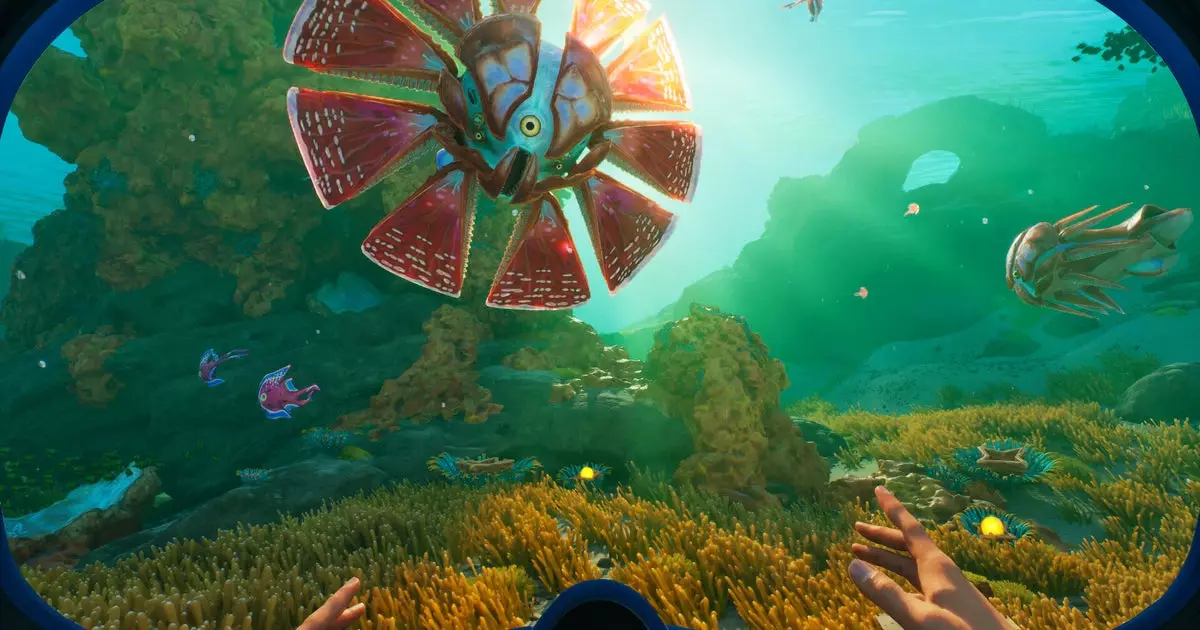The deep-seated curiosity surrounding Unknown Worlds’ upcoming sequel, Subnautica 2, is on the rise as it prepares to transition into early access next year. Fans and newcomers alike are eager to return to the underwater realms that made the original Subnautica such a phenomenon. With a promise of expansive gameplay experiences, fishing out the details from the brief information released thus far reveals a game brimming with potential, yet it also raises considerable questions about its execution.
Subnautica 2 is set to unveil an early access phase that is projected to stretch until 2027 or 2028. Although early access provides an avenue for developers to fine-tune their games with community feedback, there’s an inherent risk in embarking on a journey where players receive an unfinished product. The announcement notes that while players can anticipate multiplayer modes, various biomes, and narrative elements, the development process will undoubtedly encounter challenges. The developers have made it clear that “it will be imperfect,” which invites an understanding that survival gameplay can often have flaws that must be weeded out over time. Fans must brace themselves for an evolutionary process rather than a polished experience.
What truly sets Subnautica 2 apart from its predecessors will be the promised community engagement throughout its early access. The developers have expressed their commitment to listening to player feedback, which they recognize as essential for determining the game’s trajectory. This interactive relationship suggests a communal responsibility in shaping the final product. Players stepping into early access will have a stake in the outcome of the game, potentially influencing its mechanics, balance, and thematic elements. However, this raises concerns about balancing community desires against the developers’ vision, an often tricky tightrope for game designers to navigate.
One of the most daunting aspects of Subnautica 2’s development is ensuring that the incorporation of multiplayer does not detract from the purity of the singleplayer experience. The shimmering allure of cooperative gameplay presents opportunities for social engagement, yet the challenge lies in harmonizing this with the atmosphere that defined the original. Critics within the gaming community are already apprehensive about possible complaints regarding difficulty curves or resource management being skewed towards a multiplayer-centric approach. As players become more accustomed to their online interactions, the desire for balance and fairness may overwhelm the serenity that single-player exploration offers.
Reflecting on the previous title, Subnautica: Below Zero—despite its mixed reception—provides a touchstone for evaluating Unknown Worlds’ growth as a developer. The lessons learned from prior iterations are crucial when designing a sequel, particularly considering the elements that resonated well with players and those that fell flat. As they draw inspiration from their prior successes and setbacks, the developers must remain vigilant in keeping the fanbase engaged while also ensuring meaningful progression. With the overwhelming success brought on by user-generated content from platforms like YouTube, addressing player fears and crafting moments of tension will remain a priority.
As Subnautica 2 prepares to dive into early access, the anticipation is palpable. With promises of growth, community involvement, and thrilling undersea adventures, there is delight in the unknown depths awaiting players. However, it’s essential for both players and developers to temper expectations, understanding that great things often emerge from imperfect beginnings. Through collaboration, adaptation, and a commitment to core storytelling, Subnautica 2 has the potential to make an unforgettable splash in the gaming world. Ultimately, the journey into the depths of the ocean is just beginning, and the emergence of new wonders and unforeseen challenges awaits.

